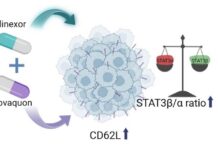Pfizer is set to withdraw Oxbryta, a sickle cell disease medication, from the market, removing one of the few available treatment options for millions of people worldwide who suffer from the condition. Sickle cell disease is characterized by intense pain and can lead to serious complications like organ damage, strokes, and even death.
Oxbryta, a once-daily pill, was developed to minimize “sickling” — the abnormal deformation of red blood cells that impairs their movement throughout the body. Approved in the U.S. in 2019, just days after Novartis’ Adakveo, Oxbryta followed Emmaus Medical’s Endari, which in 2017 became the first new sickle cell treatment in two decades.
As reported by biopharmadive.com, Pfizer acquired Oxbryta through its $5.4 billion purchase of Global Blood Therapeutics in 2022. At the time, Pfizer projected sales from Oxbryta and two other experimental sickle cell drugs developed by Global Blood could exceed $3 billion. In the second quarter of this year, Oxbryta generated $92 million in revenue.
Despite discontinuing Oxbryta, Pfizer continues to develop other treatments for sickle cell disease. The company has two promising drugs, inclacumab and osivelotor, both in Phase 3 trials. Osivelotor, previously called GBT-601, is considered the follow-up to Oxbryta and showed encouraging results in late 2023 research.
In addition, the FDA approved two gene therapies for sickle cell disease late last year, which offer the potential for long-term relief. However, these treatments come with significant challenges, including costs exceeding $2 million per patient and an intensive process involving chemotherapy. Due to these factors, patient uptake has been slow, with only a few dozen people starting the treatment process.
Pfizer advises patients currently on Oxbryta to consult their doctors about alternative treatment options, while the company continues to evaluate and review the drug’s safety data.
























